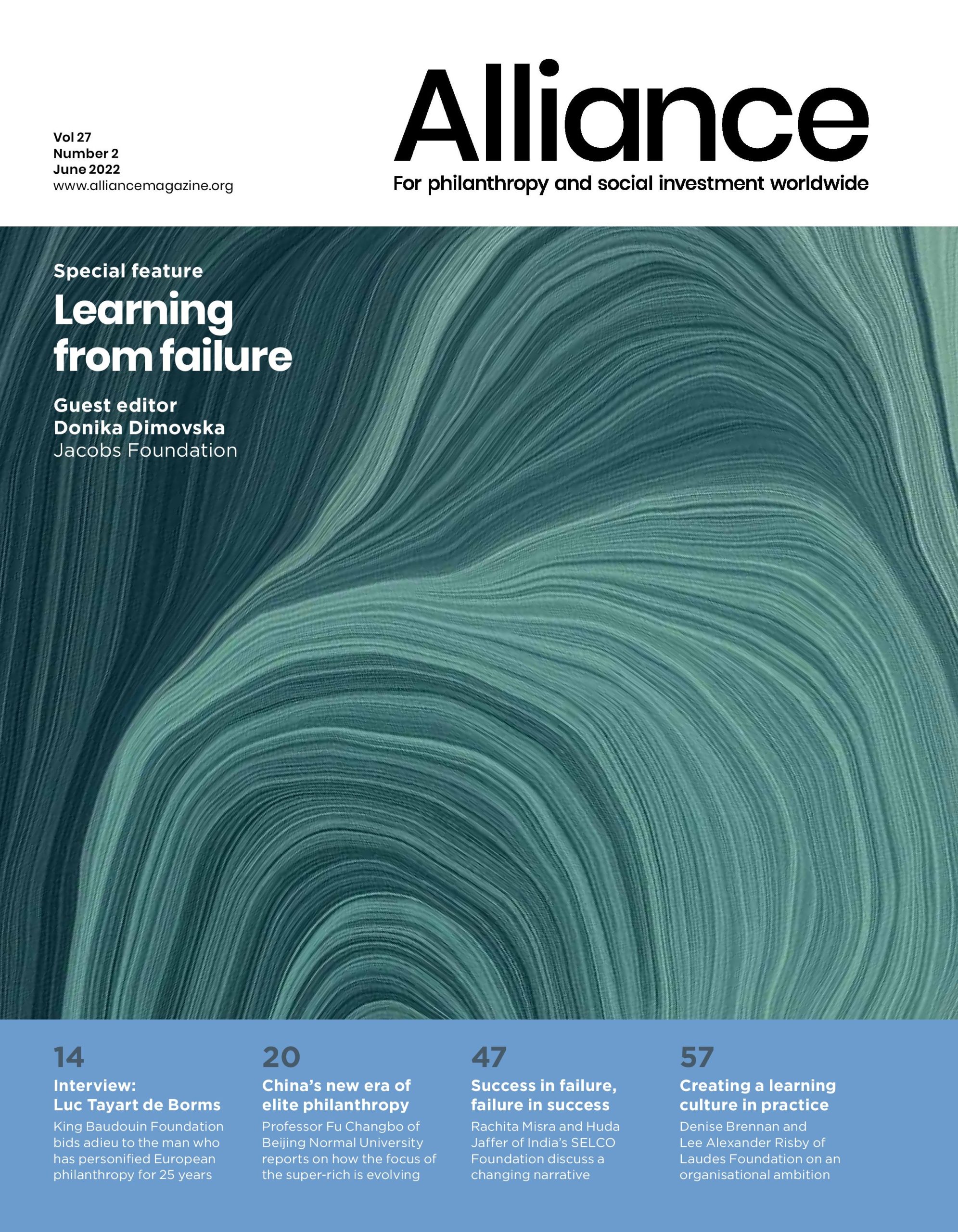Potential benefits of learning from failure are increasingly being acknowledged by the non-profit sector. The following is a snapshot of some of the philanthropic organisations actively incorporating the concept into their organisational culture
 A few years ago, the King Baudouin Foundation launched a special internal award, the ‘Best Failure Award’, with the intention of promoting learning skills internally. The first edition was problematic and few volunteers applied. In a similar way to what happens in recruitment interviews when candidates are asked to explain their shortcomings, a series of minor failures were presented: a minor technical failure on the part of a supplier, or a partnership in which one of the partners had not played the game properly. So, as the learning KBF wanted to show was that taking a risk (and logically linked to it, failing) was an obligation in the foundation, the award was given to those who didn’t have failures, which showed that they had not taken risks. The initiative was repeated a second time. The memory of the first edition contributed to an exercise which was richer in experiences. The exercise finally resulted in a shift of mentalities and an openness to sharing setbacks. The prize is now part of KBF’s good practice.
A few years ago, the King Baudouin Foundation launched a special internal award, the ‘Best Failure Award’, with the intention of promoting learning skills internally. The first edition was problematic and few volunteers applied. In a similar way to what happens in recruitment interviews when candidates are asked to explain their shortcomings, a series of minor failures were presented: a minor technical failure on the part of a supplier, or a partnership in which one of the partners had not played the game properly. So, as the learning KBF wanted to show was that taking a risk (and logically linked to it, failing) was an obligation in the foundation, the award was given to those who didn’t have failures, which showed that they had not taken risks. The initiative was repeated a second time. The memory of the first edition contributed to an exercise which was richer in experiences. The exercise finally resulted in a shift of mentalities and an openness to sharing setbacks. The prize is now part of KBF’s good practice.
 ‘The only failure we won’t tolerate is a failure to learn,’ proclaims Barr Foundation president, Jim Canales. He notes that the pursuit of big ideas requires risk and comfort with the idea of failure. In fact, Barr views ‘the presence of failure – either of individual grants or even larger initiatives that do not achieve intended outcomes – as a potential indicator of there having been sufficient ambition and risk-taking in the work.’ As part of its commitment to being honest with itself and with its stakeholders, Barr Foundation produces reports on what it is learning internally, from its grantees and from its approaches.
‘The only failure we won’t tolerate is a failure to learn,’ proclaims Barr Foundation president, Jim Canales. He notes that the pursuit of big ideas requires risk and comfort with the idea of failure. In fact, Barr views ‘the presence of failure – either of individual grants or even larger initiatives that do not achieve intended outcomes – as a potential indicator of there having been sufficient ambition and risk-taking in the work.’ As part of its commitment to being honest with itself and with its stakeholders, Barr Foundation produces reports on what it is learning internally, from its grantees and from its approaches.
Subscribe now from only £45 a year!
This article is only available for our subscribers
Existing users can login here





